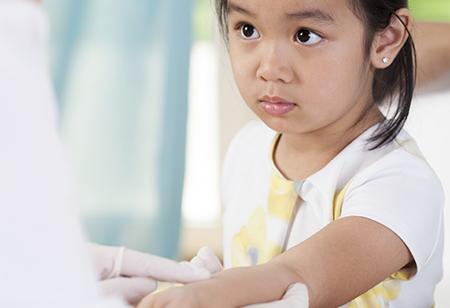To vaccinate or not to vaccinate? That's the question that keeps coming up. According to Patrick Knowles, MD, a primary care physician with HonorHealth Medical Group, there are several good reasons to vaccinate your kids, including:
Helping save lives by preventing disease
70 years ago, polio paralyzed or killed thousands. Today, there are no reports of polio in this country. That's because of the use of safe and effective vaccines.
Contributing to the protection of your community
Recent measles and whooping cough outbreaks in both Arizona and the U.S. reflect declining immunization rates. Fewer protected children means that diseases spread to the broader community. So, your decision to vaccinate affects not only the health of your child but also your community. By immunizing your kids by age two, you can protect both your own children and others they come in contact with. Children under five are especially susceptible to disease because their immune systems have not built up the necessary defenses to fight infection. For children five and older, consider vaccinating against COVID-19 to help stop the spread. Read our Q&A for more information.
Saving time and money
Vaccinations are usually covered by insurance; low-cost immunization programs are also available. The cost of not vaccinating means running the risk of vaccine-preventable diseases, which can result in disabilities, missed work, medical bills or long-term disability care.
Protecting future generations
Vaccines have reduced and, in some cases, eliminated many diseases that killed or severely disabled people a few generations ago. By continuing to vaccinate your children now and vaccinating them completely, diseases currently affecting people may be eradicated in the future. For example, vaccines eradicated smallpox worldwide; kids no longer need that vaccine. And, by vaccinating children against rubella (German measles), the risk of pregnant women passing this virus on to the child they're carrying, or a newborn, has decreased dramatically.
Science has worked long and hard to ensure that vaccines are safe. Although fevers can occur post-vaccination as well as tenderness and redness around the injection site, severe allergic reactions are rare. When it comes to almost all children, the benefits of being immunized against disease outweigh the possible side effects.

Find a doctor
Schedule an appointment with a primary care provider at HonorHealth.